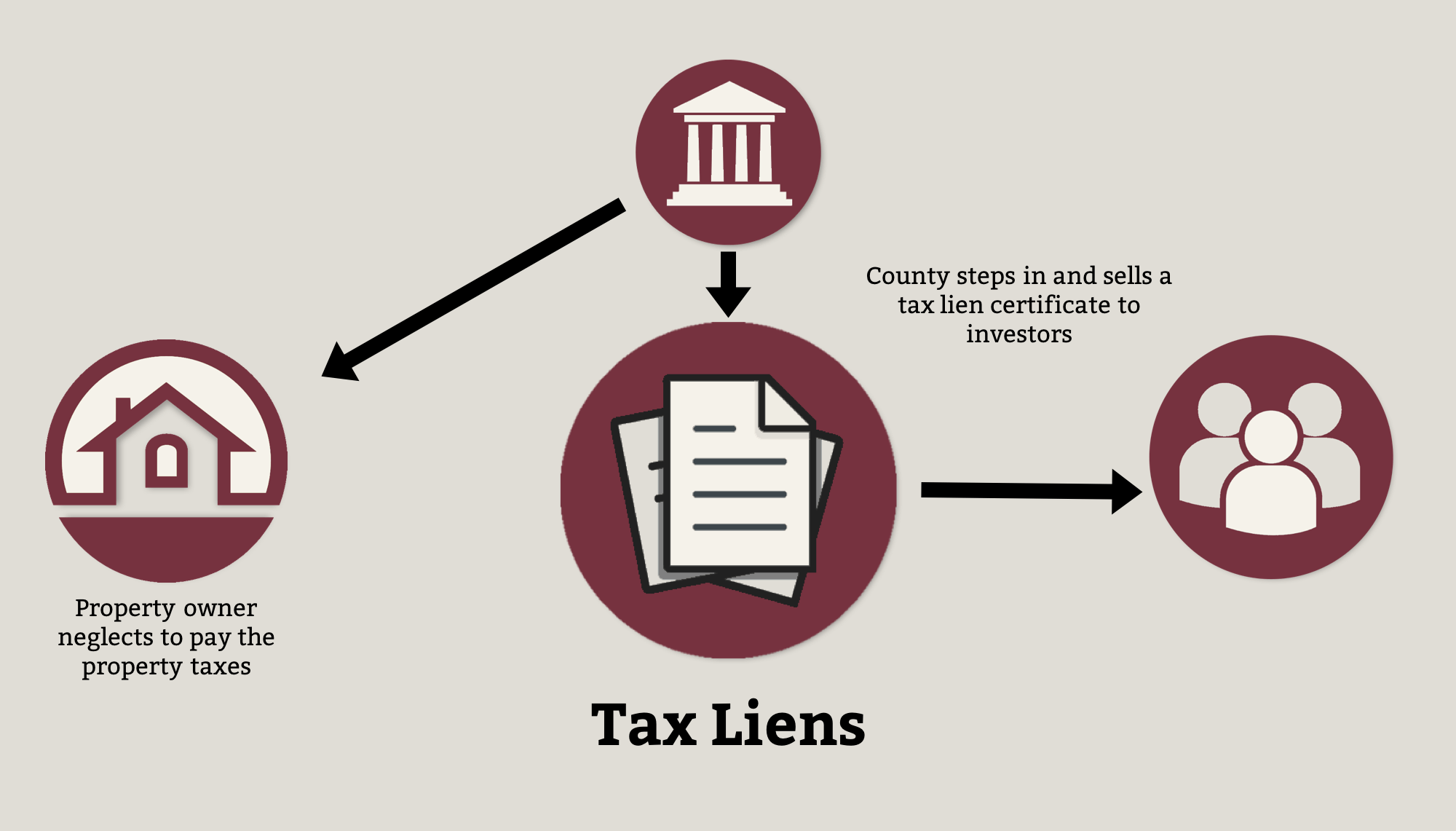All Categories
Featured
Table of Contents
If you are interested in the tax lien foreclosure procedure, you should get in touch with an attorney so you comprehend and evaluate the risks of this sort of investment. - tax lien investing ny
Tax obligation lien sales are one method that cities and counties try to recover some of the public dollars they have actually spent preserving these buildings deserted by private owners. However, as we'll explain in this short article,. As soon as property taxes are taken into consideration overdue, city governments generally concentrate on providing notification of delinquency and attempting to accumulate the unpaid quantities from the proprietor.
This procedure generally takes years - tax lien investing strategies. If a proprietor has actually walked away and hesitates to pay taxes or preserve the building, the city needs to spend tax obligation dollars to preserve the residential or commercial property. These costsboarding up the structure, mowing overgrown lawn and weeds, replying to fire and cops gets in touch with the property, and moreadd up

Owners that have fallen on tough times absolutely need every initiative to keep them out of misbehavior and in their homes. Generally, if the building is uninhabited and scrubby, we need to presume the proprietor has chosen to desert their passion in the residential property and that they are "unwilling" to pay (though scenarios earlier in the process might have forced their hand).
High Yielding Investments In Tax Lien Certificates
Take, for instance, a single-family home where the owner has actually time out of mind strolled away. For several years the city government has had to step in and remove waste dumped in the backyard, board up the doors and windows, and reply to phone calls concerning illicit task on the building. All these services set you back the neighborhood federal government taxpayer bucks.
In several states, those expenses can be collected likewise as the overdue taxes, but not in all. (Something that Area Progress highly supports in support of.) Ultimately, the total debt becomes greater than what the residential or commercial property might cost. In a tax lien sale (or tax obligation certification sale) the city government typically holds a public auction where the winning prospective buyer concurs to pay one of the most money for the right to apply the tax lien, starting with a minimum bid of a minimum of the tax obligations had, plus appropriate rate of interest, charges, and prices.

When a federal government sells the tax obligation lien they are generally selling to an exclusive customer the city government's authority to gather the financial obligation in exchange for upfront settlement of the tax obligations owed. The buyer's purchase usually includes the capacity to gain future interest, in addition to redeem related costs and prices incurred by the buyer, if the building proprietor pays the tax financial obligation.
This is, basically, privatization of a core federal government function: tax collection. Tax lien sales are especially poor when it pertains to uninhabited, deserted, and scrubby residential properties because they extend the duration prior to a residential property can be moved into the hands of a new, more accountable owner. Private tax obligation lien buyers hold the debt, but they do not have the titlethe legal right to ownership of the propertyand oftentimes, they have no rate of interest in obtaining it.
How To Buy Tax Liens At Auction
Thinking about budget plan cuts, regional federal governments in many states have actually minimized in-house building tax obligation collection and enforcement initiatives and wanted to tax lien sales as a fast mixture of revenue - how tax lien investing works (how to invest in real estate tax liens). Many areas choose or are mandated by the state to sell tax obligation liens because it contracts out collection and usually generates extremely required cash money previously in the collection process
By transferring the city government's passion in and enforcement of the tax obligation lien to an exclusive purchaser, city governments lose much of their adaptability: flexibility to get vacant buildings that the private market does not want, or to assist the owner stay clear of shedding their residential property. With vacant residential properties, there is a much higher opportunity that the personal buyer isn't curious about the residential property itself.
Tax lien sales can create damage in traditionally disinvested locations. In a depressed real estate market, less owners are able to redeem the amount of the financial debt marketed to a tax lien customer. These areas are ripe for a different kind of tax obligation lien investorspeculative proprietors looking for to acquire buildings on the inexpensive by foreclosing on the real estate tax lien, milking what bit equity is left by leasing a low-grade home to at risk tenants, and afterwards deserting the residential or commercial property when they've gained back their investment.

Not all state regulations offer local federal governments the power to interfere in this cycle. In either case, the property continues to be vacant and in limbo, all the while enforcing considerable expenses on its next-door neighbors and taxpayers. It's easy to understand that lots of city governments turn to tax obligation lien sales because they assist fund important public services.
If the neighborhood government rather sells the property (also known as the "tax obligation action"), instead of the tax financial obligation, after that they are in control of what takes place to the home and the enforcement procedure if the owner remains to not pay the building tax obligation owed. The federal government will provide the proprietor a reasonable time to repay the tax obligation financial obligation, after which the federal government will foreclose its interest in the tax lien and the owner's right of redemption.
From their inception, these auctions were places for investors to benefit through exploitation. In very early 20th-century cities, well-known "tax obligation sharks" like Chicago's Jacob Glos and New York's Charles Wiltsie accumulated lot of money by purchasing up ratings of tax liens on homes, charging their owners outrageous quantities to get rid of the lien, or waiting up until the due date for settlement passed and claiming the deed.
Arizona Tax Lien Investing

Calls to eliminate tax obligation lien sales and overhaul tax obligation delinquency regulations have actually occasionally erupted. Commonly, they have can be found in action to cases of poor, typically senior home owners who shed their homes to deceitful tax obligation buyers over little tax financial obligations. With a few exceptions, state legislatures have withstood architectural reforms (invest tax liens).
Those that have actually repaid their mortgages (mostly seniors or individuals who had inherited a family members home) need to also find the cash to pay real estate tax. This describes why 70 percent of the homes sold at tax obligation lien sales are possessed outright. It is well previous time for states to embrace a more humaneand extra effectivesystem for real estate tax enforcement.
Latest Posts
Tax Lien Investing Software
Why is Private Real Estate Deals For Accredited Investors a good choice for accredited investors?
Best States For Tax Lien Investing